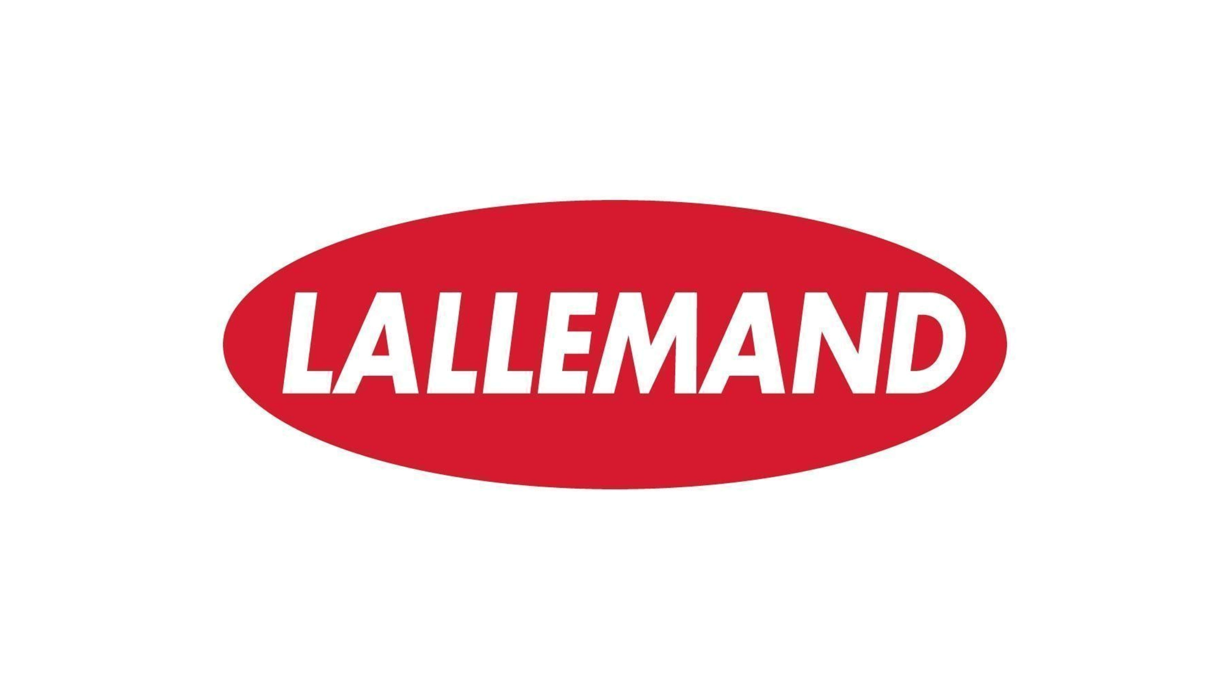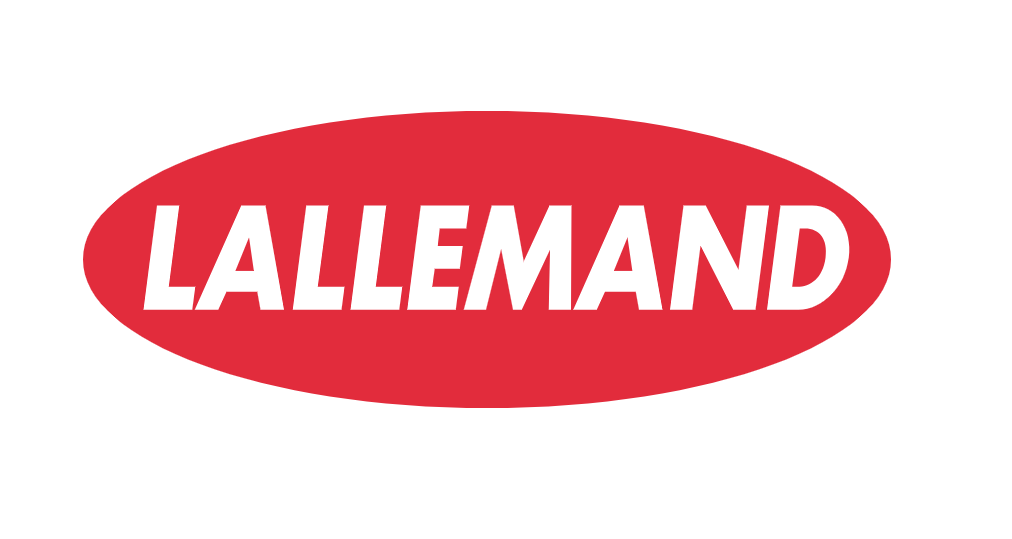



New insights into how live yeast improves pigs' resilience to heat stress
Research shows relationship between the gut microbial composition and pig’s metabolic adaptation to heat stress.Heat stress is becoming a major concern for high producing animals in all areas of the world. Heat stress can have negative consequences on feeding behavior, growth performance and animal welfare. Data have shown that feeding the live yeast Saccharomyces cerevisiae boulardii CNCM I-1079 (LEVUCELL SB) can help alleviate the effects of heat stress on pig performance and well-being. A 4-year research program conducted by doctoral student Aira Serviento in partnership with Etienne Labussière and David Renaudeau of INRAE took a deep dive into the mechanisms of heat stress in swine (2022), which also shed light on the live yeast’s modes of action.
Higher insulin sensitivity
A trial was conducted using metabolic chambers to evaluate the effect of live yeast supplementation and feeding frequency in male finishing pigs subjected to heat stress (Serviento et al., 2022). It complemented previous studies (Labussière et al., 2022) by looking deeper into the metabolic pathways involved in heat stress adaptation.
Findings show increased resistance to heat stress was possibly attributable to improved insulin sensitivity of the pigs fed live yeast. Their insulin:glucose ratio was significantly lower around meals (Figure 1). This may contribute to higher energy efficiency during heat stress.
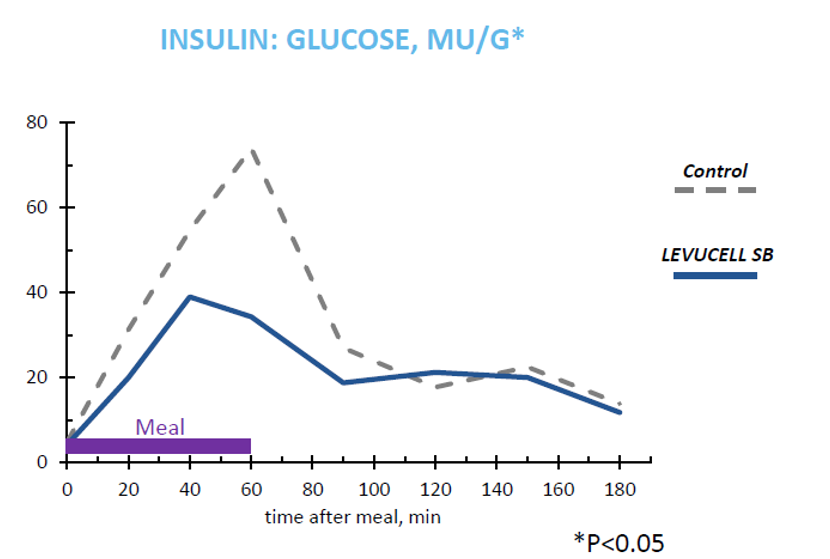
Improved sensitivity to insulin can be explained by two main mechanisms of action of the live yeast:
- Improvement of intestinal integrity during stress
- Increased production of short chain fatty acids in the gut, thanks to microbiota modulation
It is noteworthy that in humans — where the live yeast S. boulardii has been widely documented for 100 years — S. boulardii supplementation has been reported to attenuate diabetic related complications such as hyperglycemia (due to impaired insulin activity or production) by microbiota modulation and improved immune responses.
Insulin and its potential role in heat stress adaptation
In pigs, heat stress induces an increase in glucose utilization. Cells in the immune system are glucose users when they are stimulated. Thus, heat stress induces a switch in the nutrient partitioning normally used for growth, which results in a reduction of performance (Baumgard and Rhoads, 2013).
Activated immune cells become sensitive to insulin while muscle and adipose cells become refractory to insulin during the heat challenge. Therefore, the effect of heat stress on fat deposition might be connected to an altered insulin response.
Improving insulin sensitivity can help mitigate heat stress effects on metabolism and growth performance.
Improved thermoregulation
During heat stress, water evaporation through panting represents the main mechanism for heat dissipation in pigs and high temperatures increase water requirements.
Interestingly, the trial conducted under controlled conditions (respiratory chambers), indicates increased water intake, especially around meals, for the live yeast supplemented pigs. This, in turn, increases the pigs’ ability to dissipate heat through water evaporation (Figure 2).
As a result, the pigs’ body temperature went down quicker after a meal as compared to the control, indicating an improved thermoregulation response and heat dissipation with the live yeast. This represents another mechanism of adaptation to heat stress challenges assisted by live yeast (Figure 3).
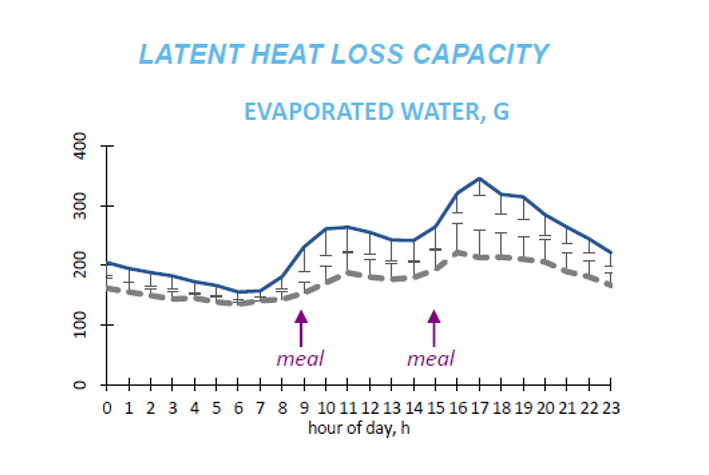
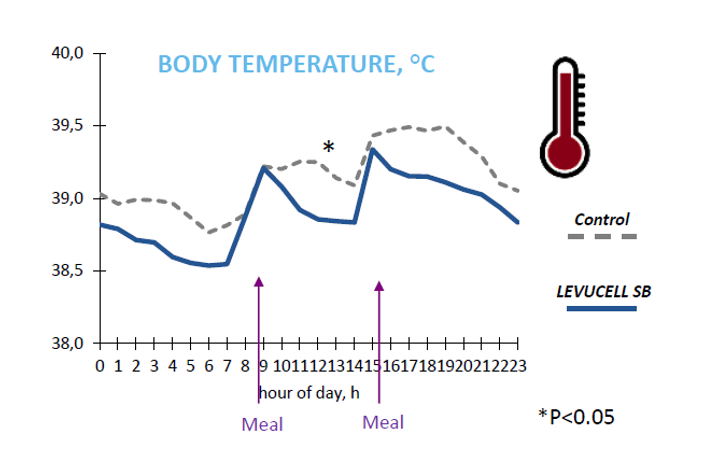
Preserved feeding behaviour and energy metabolism
The study also evaluated the benefit of the live yeast on pigs’ feeding behavior, metabolism and growth performance. Indeed, under heat stress, pigs tended to eat less and divert their energy metabolism from growth.
In pigs supplemented with live yeast, the impact of heat stress on feeding behavior was alleviated. As previously shown by Labussière et al.: animals significantly increased their meal frequency (Figure 4) and, thus, their total feed intake.
Better adaptation to heat stress conditions in live yeast supplemented pigs resulted in better energy retention, which also confirmed previous findings (Figure 5).
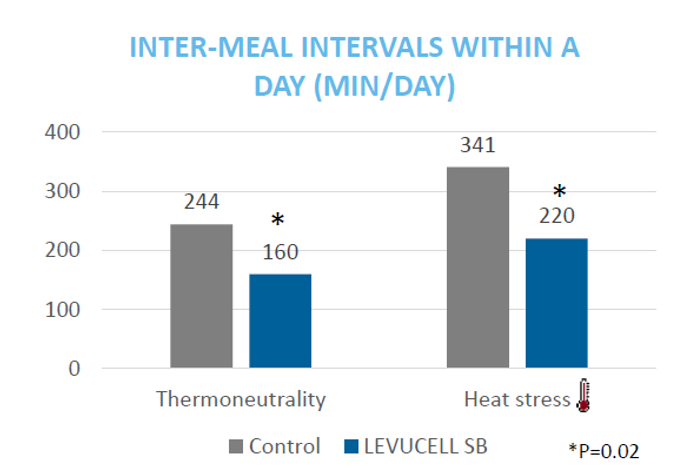
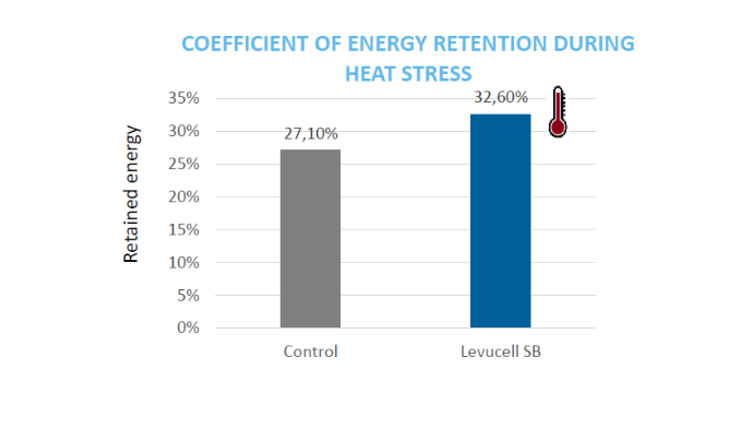
In conclusion, improved heat tolerance of live yeast supplemented pigs lies in their ability to maintain the dynamic equilibrium between heat production and loss throughout the day. Recent research has established a relationship between the gut microbial composition and the pig’s metabolic adaptation to heat stress. In turn, feeding behavior, water intake, energy utilization (insulin sensitivity) and, thus, growth performance and welfare are better preserved. Levucell SB represents an interesting tool to help animals cope with increasing heat stress conditions.
| References | ||||
|---|---|---|---|---|
| Baumgard LH and Rhoads | ||||
| (2013) | Effects of heat stress on postabsorptive metabolism and energetics.. Annu. Rev. Anim. Biosci. | 1:311-337 | ||
| Labussière, E., Achard, C., Dubois, S., Combes, S., Castex, M., & Renaudeau, D. | ||||
| (2022) | Saccharomyces cerevisiae boulardii CNCM I-1079 supplementation in finishing male pigs helps to cope with heat stress through feeding behaviour and gut microbiota modulation.. British Journal of Nutrition, | 127(3), 353-368 | ||
| Serviento AM, Castex M, Renaudeau D, Labussière E. | ||||
| (2022) | Effect of live yeast supplementation and feeding frequency in male finishing pigs subjected to heat stress.. Br J Nutr. | 2022 Aug 19:1-37 | ||
| Serviento AM | ||||
| (2022) | Dynamic responses of growing pigs to heat stress modulated by prenatal life and feeding practices. | PhD Thesis, |







